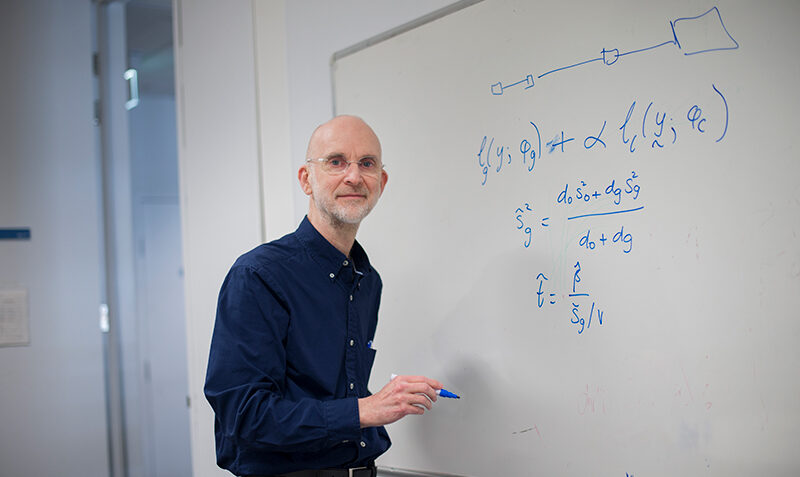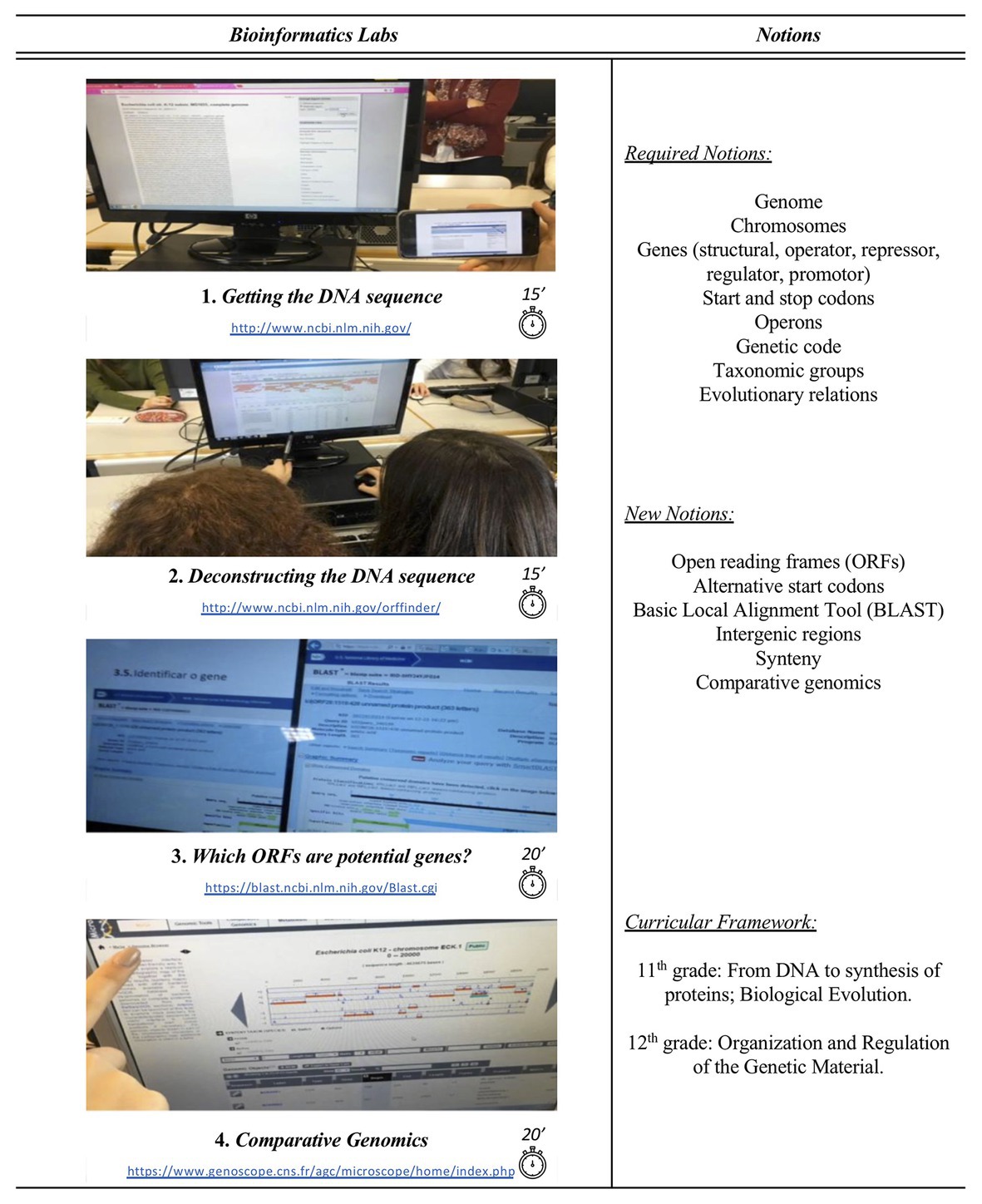Getting The Bioinformatics Tutor To Work
Getting The Bioinformatics Tutor To Work
Blog Article
Bioinformatics Tutor Things To Know Before You Get This
Table of ContentsBioinformatics Tutor Things To Know Before You Get ThisSome Ideas on Bioinformatics Tutor You Need To KnowThe Best Guide To Bioinformatics TutorFascination About Bioinformatics TutorNot known Factual Statements About Bioinformatics Tutor
Of the total participants associated with the training, 80% were pupils from public greater education and learning establishments, while the continuing to be 20% came from exclusive organizations. To qualify for a certificate of involvement, students were needed to go to at the very least 90% of the overall training hours. As an outcome of this requirement, an excellent 95% of the participants successfully acquired their certifications, having not just satisfied the minimum attendance requirements but likewise completed all assigned tasks throughout the training.
During the height of the COVID-19 pandemic, specifically between June and August 2020, the job group was tasked with organizing specialized training in bioinformatics. This training was specifically targeted at students from the research study team Center for Study in Applied Computer at the Federal University of Pará (UFRA) The adjustment to remote learning platforms because of the pandemic developed an opportunity to explore brand-new training approaches and electronic tools that improved both reach and performance.
To reply to the growing demand in the computing and life sciences fields, a sophisticated course was introduced in 2020 entitled Intro to Artificial intelligence. This program was developed to supply an easily accessible yet thorough introduction of Expert system techniques, specifically as applied in bioinformatics. The program was performed over three months, from October to December 2020, and was provided totally online via the Google Meet system. This online layout allowed involvement from pupils throughout Brazil, numerous of whom might not have had the chance to go to in-person sessions.
Bioinformatics Tutor Can Be Fun For Everyone
Around 50% of the total training hours were committed to useful tasks where trainees built smart designs and applications in a variety of scientific domain names, including genes, molecular biology, and environmental information analysis. These platforms allowed trainees to involve in real-time data adjustment, design training, and algorithm trial and error.
Sixty of them were connected with different greater education and learning organizations in the state of Pará, while the staying twenty came from establishments located in five other Brazilian states. By introducing Artificial Intelligence in a appropriate and sensible context, the campaign offered to bridge the space between concept and real-world application, supplying trainees with a solid foundation for future research study or work in the field.
The training initiative developed part of a broader scholastic outreach initiative referred to as the Bioinformatics on the Road task. This job has, over the years, presented lots of pupils to the globe of bioinformatics and computational biology. The events held under this umbrella campaign have occurred across multiple regions and years, as summed up in Table 1 (Listing of occasions, places, years, and total numbers of trainees and instructors)
Numerous of these groups, originally brought with each other by their engagement in training occasions, have actually given that gone on to generate independent scientific research in cooperation with regional academic establishments. The training not only promoted clinical reasoning within the context of bioinformatics but likewise triggered collective partnerships that extended beyond the training atmosphere.
Indicators on Bioinformatics Tutor You Should Know
The task itself was conceived and organized by megabytes and RR, that supervised the planning and execution of each step. Lectures were supplied by a multidisciplinary team including MB, FA, EF, KP, JS, DM, SN, LP, LG, IH, rr, and ac. The exact same team, Source leaving out IH and RR, also acted as tutors for the functional training components. Funding for the job was given through the grant 88887.200562/ 2018-00 from CAPES. The writers expand their gratefulness to everyone that added to the realization of this task, whether straight or indirectly, since its beginning.
The Federal College of Pará's Office of Study (PROPESP/UFPA) additionally gave click financial backing, specifically for the production of the last manuscript. The writers declare no monetary or industrial conflicts of passion that can have influenced the research study. Moreover, all analyses and point of views expressed in this post are solely those of the authors and do not always reflect those of their respective establishments, the author, editors, or customers associated with the publication procedure.

Excitement About Bioinformatics Tutor
From an instructional perspective, the mentor strategy made use of in the training was intentionally interactive. Courses were performed in a manner that encouraged pupil involvement and conversation, going past memorizing memorization to check out how concepts are created, applied in every day life, and evaluated in academic settings. The training viewpoint concentrated on nurturing both solid and struggling students, giving personalized assistance, and structure confidence via sustained mentorship and perseverance.

Each group, containing approximately 36 individuals, was image source supported by 3 mentors-- most of whom were postdoctoral researchers with specific competence. These mentors not just assisted make the team jobs however additionally facilitated their implementation, ensuring that each research study concern was both suitably challenging and appropriate. The objective was to provide a biologically realistic context that participants could discover through open-ended purposes and access to curated datasets.
For additional insights right into the approach and outcomes of this project-based knowing strategy, readers are directed to S1 Text, which includes detailed descriptions of the instructional structure, evaluation strategies, and job motifs used in the training sessions.
The Of Bioinformatics Tutor
Of the total individuals included in the training, 80% were trainees from public greater education and learning organizations, while the staying 20% came from exclusive establishments. To qualify for a certification of involvement, trainees were required to attend at the very least 90% of the complete training hours. Especially, beyond the pupils that signed up in the training sessions, seven knowledgeable teachers took part in providing the programs, while 3 dedicated research study teachers worked with the general training procedure. About 50% of the total training hours were dedicated to useful activities where pupils built intelligent versions and applications in an array of scientific domain names, consisting of genetics, molecular biology, and environmental data evaluation. The training not just cultivated clinical thinking within the context of bioinformatics yet additionally triggered collaborative relationships that extended beyond the training setting.
Report this page